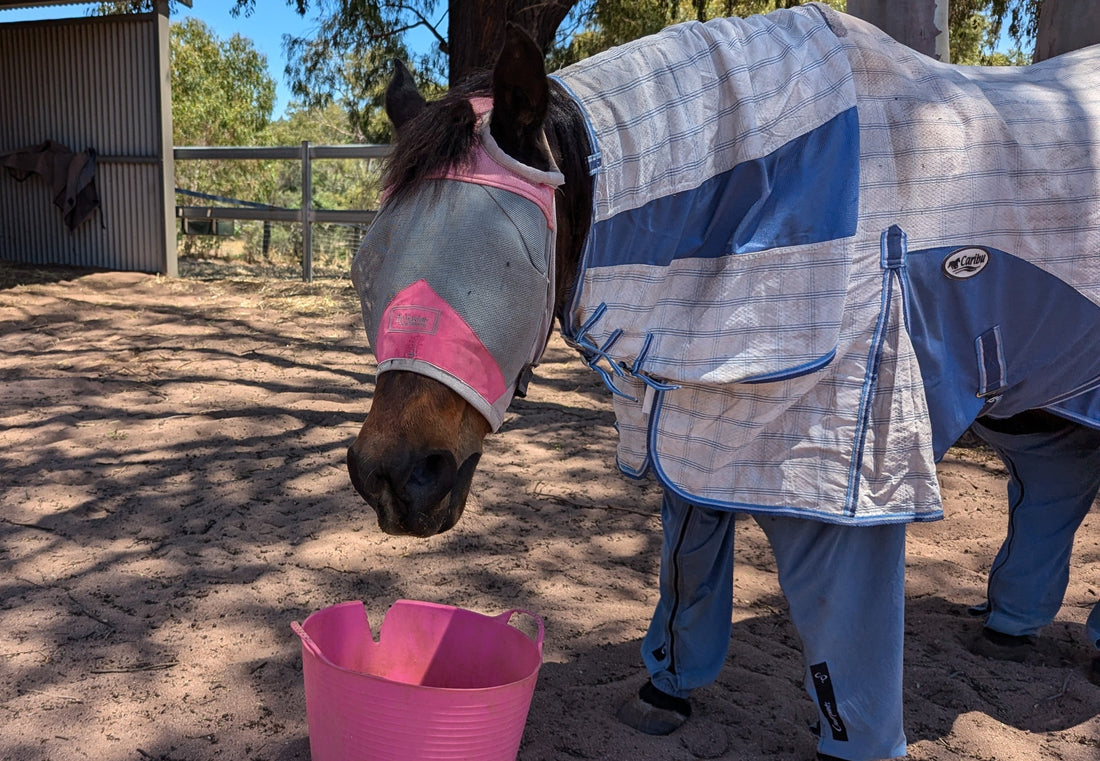Is Insect Repellent Harmful to my Horse?

Have you ever wondered about the effects of insect sprays or lotions on your horse?
When chemicals (natural or synthetic) are applied to our skin they can be absorbed into the body. They can also be inhaled, or ingested from chewing or licking. Some seem to have no obvious harmful effects, while others can lead to irritation, damage to the skin, or, at worst a severe allergic reaction.
Being our largest organ, our skin is a means of absorption into our bloodstream. So even if your repellent doesn’t appear to have caused an immediate reaction, it could be contributing to long term health issues.
And it’s not only our horse that is affected – have you considered the effects of this on you when you’re applying the repellent?
Sometimes it can be obvious that the active ingredient/s are harmful – especially when there are warning labels on the packaging. But even natural ingredients can cause harm.
One of my horses experienced a severe reaction to a fly repellent containing citronella. Within minutes of spraying her, she came out in large hot welts all over her neck and body. It took frequent cool hosing and steroid medication to bring this under control and needless to say we never used it again.
I often hear about insect repellents that work really well, either initially, or for a limited time, but then don’t appear to work. When this happens there is a tendency to try a stronger one next time or to apply more frequently, increasing the potential risk of harm.
While there are articles published on the harmful effects of some of the chemicals used in insect repellents, there is next to no research into the long-term health implications and effect on the immune system in either humans or horses, and there’s not likely to be any without significant funding.
What’s the alternative?
Physical barriers are a completely non-toxic way to protect from insects (although I would not be so certain of those impregnated with repellents). These include rugs, fly masks and leg protection. By choosing the right items for your horse, you can keep them protected from insects without the use of repellents.
When there are alternatives to topical applications, why take the risk?
This may not be practical during exercise, but even reducing the use of insecticides will reduce the risk to your horse’s health.
Conclusion
While some horses will happily endure the application of insect repellent on a daily basis with no apparent reaction or harm be mindful that the long-term effects are largely unknown. By applying these to your horse, you could also be accumulating these toxins in your own body.
There are alternatives, so why take the risk? When insects are an issue, opt for covering the affected area with appropriate mask, rug and leg protection.
🐴Together - making our horses’ lives better – Yvette
Related HorseTalk blogs:
Allergies in Horses – Breaking the Cycle
Related Articles:
Fly Spray Myths Debunked by EQUUS – 5 June 2024
Fly Spray: 3 Ingredients You Need to Know About by Monique Warren (from Hay Pillow) – updated 7 February 2023
Best Fly Control for Horses & Barns: Sprays, Gears & Other Measures by Caroline Cochran, BSc - updated 30 March 2025
Effects of Skin Contact with Chemicals by Department of Health and Human Services (downloadable PDF)
Disclaimer: These are my thoughts and opinions and should not be considered expert or medical advice. I recommend that you seek professional advice in relation to your horse/s.










